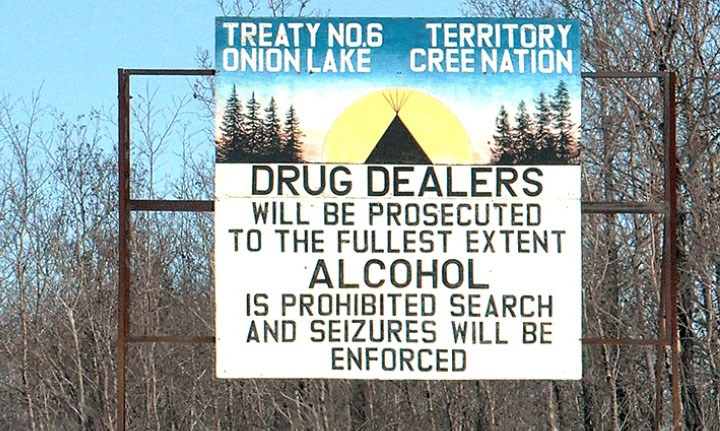Help for Onion Lake Cree Nation in its fight against gang and drug-related violence was interrupted due to COVID-19, according to a spokesperson from Indigenous Services Canada.
OLCN declared a state of emergency in January after a string of violent incidents and the leadership asked the government to step in.
“We have been working on a joint Federal government strategy with Onion Lake Cree Nation to determine how existing federal programs from multiple departments could support elements of their proposal,” said Martine Stevens, media relations for Indigenous Services Canada on Sept. 2. “This effort has been delayed due to the onset of the COVID-19 pandemic.”
Martine said the RCMP and other Government of Canada partners such as the Indigenous Services Canada, Public Health Agency of Canada and Public Safety Canada are working with the community to ensure a coordinated federal response.
“Public Safety Canada is the lead in the development of a whole-of-government Response Plan to gang violence and drug-related violence and provides funding with regards to funding policing on reserve,” said Martine.
Public Safety Canada was contacted for comment.
Earlier this year OLCN submitted a request to the federal government under Jordan’s Principle to support their health model and discuss funding for Indigenous Early Learning and Child Care, housing and the state of emergency. Jordan's Principle ensures all First Nations children living in Canada can access the products, services and supports they need, when they need them.
“Through Jordan's Principle, ISC has funded elements of the community’s proposed health model,” said Martine.
“This funding will help with a wide range of health, social and educational needs of children in the community.”
OLCN leadership asked Indigenous Services Canada for an addition $15-16 million in funding to fight drug and gang related activity.
Philip Chief, director of operations for OLCN, said OLCN isn’t alone, and all First Nations communities need more funding for health, wellness and education, and not just for crime prevention.
Martine maintained the federal government is helping.
“We are taking action to protect Indigenous communities, and prevent violence by funding community‑driven prevention projects such as public awareness campaigns, conferences, workshops, stress and anger management seminars, support groups, and community needs assessments on and off-reserve.
“Indigenous Services Canada remains fully committed to ensuring the safety and well-being of First Nations children, families and communities and will continue working with partners to improve the safety, security and well-being of the children and families of Onion Lake Cree Nation,” she added.
Chief said Onion Lake RCMP is stretched thin dealing with the gang and drug-related crime plaguing the three townships on OLCN that spans 188,000 acres.
In July OLCN leadership teamed up with Onion Lake RCMP to release gang awareness prevention resources.
The RCMP Crime Reduction Team was sent to Onion Lake Aug. 12 to 16 to help reduce gang activity. The RCMP CRT members collaborate with communities and partner agencies to reduce gang violence and activity.
OLCN is installing wireless video surveillance cameras at key locations on OLCN and is considering putting the blockades back up after a recent spike in gang and drug-related violence.




